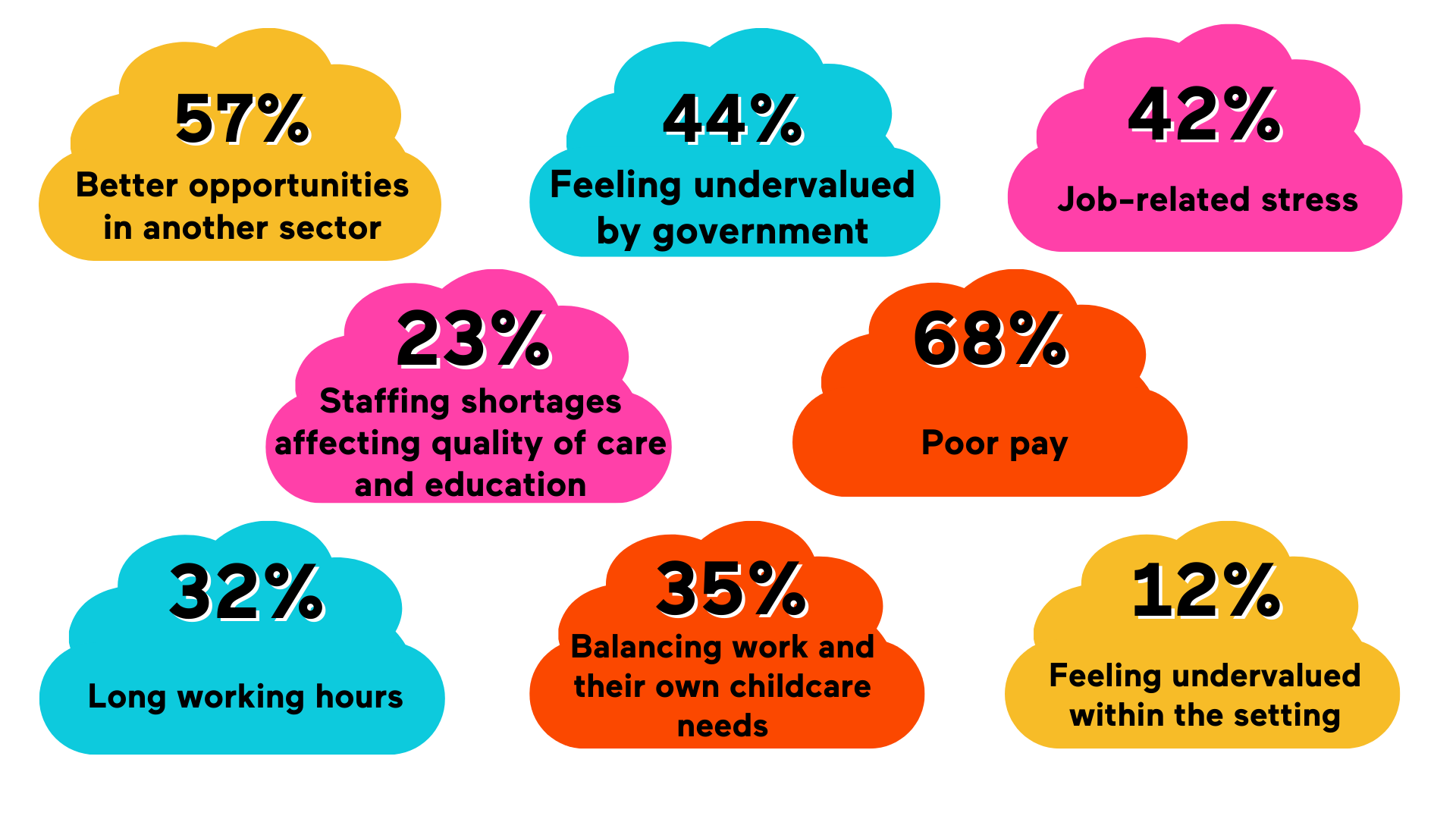Recruitment and Retention
The Department for Education'The early years workforce: recruitment, retention, and business planning' report found:
- Certain qualifications such as GCSEs are seen as insufficient for a career in Early Years by some managers. Managers believed that certain qualifications such as GCSEs and graduate programmes (relating to child development) provided an ‘imbalance’ whereby applicants had a theoretical, rather than practical understanding of job requirements
- A number of staff leavers moved to similar jobs and sectors that had higher rates of pay
- Funding rates and low revenue were one of the main causes of instability in their settings
- Incoming staff were unaware of the day-to-day realities that came with working in Early Years (EY)
- Lack of flexibility and poor work-life balance
- Managers saw bank staff and apprentices as a necessary part of their workforce
- Apprentices (level 2 and 3) that were hired through training providers were potential long-term investments that could effectively integrate into settings as members of staff once they had completed their formal training
- Managers mentioned that apprentices were often more cost-effective and had the potential to carry out roles and responsibilities to the same standard as other members of staff, once qualified
All of the qualifications are not balanced enough for the practical elements and for understanding it from the ground up. It’s becoming too theory based where they can tell me about theories all day long but can’t tell me how it works.
- Setting Manager
There is an attitude that staff come here and play with children. It’s not seen as a proper career job where you can progress
- Setting manager
To get applicants is pretty easy, to get quality staff is difficult. Both for apprentices and qualified staff.
- Setting manager
Swift is eager to have an impact on the industry, therefore we make sure that our training includes a balance of these 4 key areas: knowledge teaching and assessment, competency teaching and evaluation, on-the-job learning and off-the-job learning. A blended delivery strategy, used by sector specialists, enables balanced training, leading to competent, content, and confident practitioners and employers who raise the standard of care in their settings while earning a monthly return on investment. Click here to read more.
According to a survey conducted by the Early Years Alliance on 'The impact of recruitment and retention challenges on the early years sector in England':
84% of respondents are finding it difficult to recruit suitable new early years staff, with 60% finding it 'very difficult'. The reasons mostly commonly cited by these respondents were: a lack of applicants for roles (87%), applicants lacking full and relevant early years qualifications (70%) and an inability to meet the salary demands of applicants (52%).
Most common reasons for former staff leaving the sector (reported by nursery managers):




